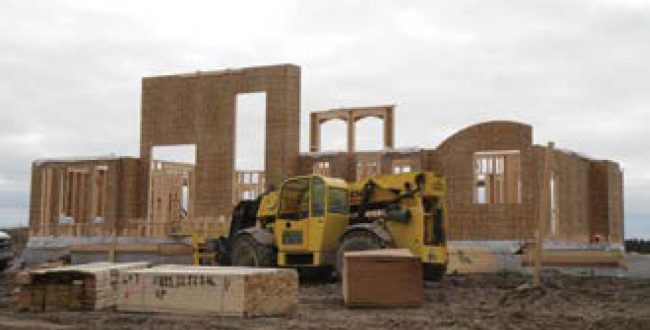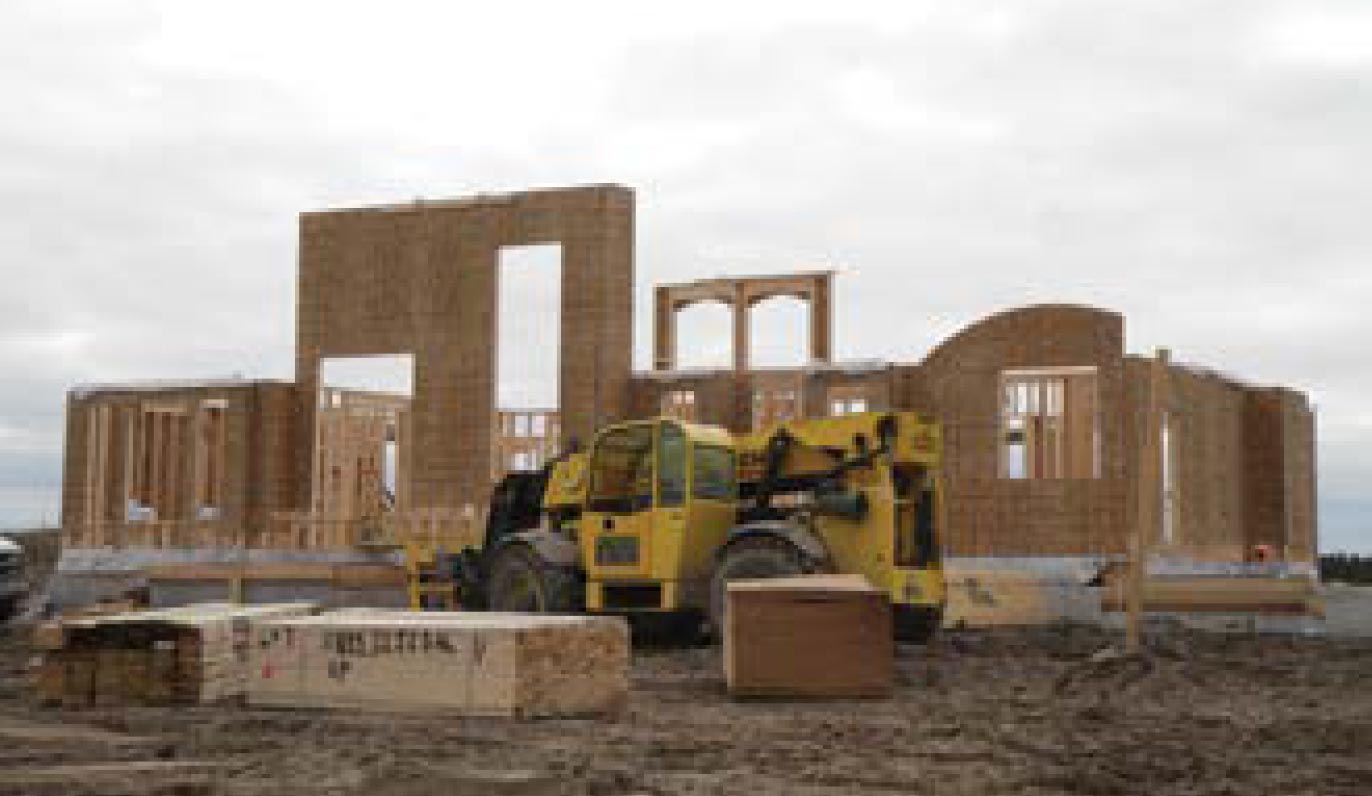the view from inside
UNAVOIDABLE
DELAYS
What these mean to buyers and new homebuilders

Ask anyone involved in construction about the challenges they face in keeping to a set schedule, you’ll hear similar responses. Weather is a big consideration and something we have no control over. Too much heat and it becomes risky to work outdoors. Too much rain and machinery may get mired down in mud or conditions become unsafe. Too much wind (especially in the case of highrise and waterfront construction) and limitations are placed on crane operators. Too cold and it’s impossible for bricklayers and roofers to do their jobs. Apart from weather, labour shortages, labour negotiations and strikes also have an impact.
To shed light on how a significant work stoppage came about this summer, we contacted the Residential Construction Council of Ontario (RESCON), which represents approximately
250 residential builders. The Ontario Labour Relations Act stipulates that every three years all unionized employers in the GTA’s residential construction sector enter into collective bargaining discussions; 2016 is one of these years and bargaining efforts were unsuccessful. Workers from the framing, tile, drywall and trim sectors voted to strike on May 2, and many were out for 46 days.
The strike, which was the first that was so widespread in 18 years, resulted in an almost complete shutdown of the residential sector, as some of the trades involved are critical for both the onset and completion of construction. In addition, other trades honoured picket lines or were unable to cross them. To further complicate matters, on June 2, the lowrise electricians joined the strike.
The strike ended in mid-June, followed by binding arbitration, and resulting in widespread

delays across the industry impacting suppliers of materials and labour, making it necessary to extend the closing dates and delay scheduling repairs of homes in the affected areas.
You might conclude then that once the strike was over, construction got back to normal. However, building homes is a linear process. Certain trades have to complete their work before others can begin. Once the strike ended, new homebuilders worked diligently to restart the complex scheduling process involving more than 30 sub-trades, local and international suppliers, and restore production.
The unfortunate outcome is that many homes will not meet their originally assigned closing dates. In order to resume construction activities completely, RESCON requested the Tarion Warranty Corporation (Tarion.com) to grant builders extensions of no less than 12 weeks and up to 24 weeks.
“Buyers can call Tarion to obtain more information on how the strikes may have impacted their homes and closings,” RESCON vice president Andrew Pariser said, pointing out that there is no benefit to builders to delay closings.
Geranium Homes, along with all other new homebuilders, always work toward delivering homes as promised, but unavoidable delays may occur in the process. In the end, we want the same things as our purchasers – to deliver beautiful, solidly built homes that meet and exceed their needs.
Louie Morizio is vice president, housing for Geranium and a director of RESCON. Since 1977,
Geranium has built more than 8,000 homes in fine neighbourhoods and communities throughout Ontario. Geranium.com



